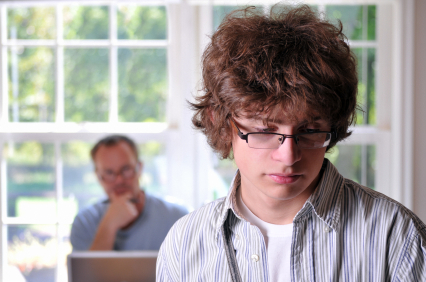Children of Bipolar Parents in US More Ill than Those in the Netherlands
New research shows that bipolar disorder risk is higher in the US than in the Netherlands. At the 2015 meeting of the American Academy of Child and Adolescent Psychiatry, researchers Manon Hillegers and Esther Mesman described a study in which they compared the offspring of mothers with bipolar disorder in the US to those in the Netherlands. The offspring ranged in age from 10–18.
In the US, the mothers had, on average, an earlier age of onset, more substance abuse comorbidity, and were more likely to have been diagnosed with bipolar II disorder. Among the US offspring, 66% had been diagnosed with a psychiatric illness compared to 44% of the Dutch offspring. This included significantly higher rates of anxiety, ADHD, and disruptive behavior disorders in the US offspring. Among the offspring who had been diagnosed with a mood disorder, 80% of those in the US had other additional psychiatric disorders, but only 34% of the Dutch did. Bipolar disorder is more rare among children under the age of 12 in the Netherlands compared to the US.
Dutch children and adolescents were typically treated with lithium and with only one drug at a time. In the US, lithium is less widely used, and simultaneous treatment with several medications (usually including atypical antipsychotics) is common.
Editor’s Note: The research by Hillegers and Mesman replicates research by this editor (Robert M. Post) and colleagues that compared bipolar disorder incidence and severity in the US, Germany, and the Netherlands. Other comparisons have been made between the US and Europe. A 2014 article by Frank Bellivier and colleagues in the World Journal of Biological Psychiatry also showed that bipolar disorder onset occurs earlier in the US than in 10 different European countries, while Bruno Etain and colleagues found that bipolar disorder onset occurs earlier in the US than in France in a 2012 article in the Journal of Clinical Psychiatry.
Together this research shows that bipolar disorder is more serious in the US than in a number of European countries. Two-thirds of adults with bipolar disorder report that their illness began in childhood or adolescence. Most of these cases are not properly diagnosed or treated. A concerted effort must be made by the medical establishment and healthcare policymakers in the US to provide better and earlier treatment of bipolar illness.
Anxiety and Depressive Disorders Often Precede the Onset of Bipolar Disorder in Those At High Risk Due to Family History
At the 2012 meeting of the American Academy of Child and Adolescent Psychiatry (AACAP) meeting, Anne Duffy and Gabrielle A. Carlson sponsored a symposium on the association between anxiety and minor mood disorders and subsequent bipolar disorder in those at high risk. Researchers presenting at the symposium consistently found that there is a sequence in which young people at high risk for bipolar disorder develop increasingly severe illnesses: first anxiety, then mood disorders, then bipolar illness.
One difference: the incidence of childhood-onset bipolar disorders in those at high risk because a parent has the disorder was lower in Canada, Switzerland, and the Netherlands than it was in the US.
Duffy, a professor of psychiatry in Calgary, noted that bipolar disorder is highly heritable even though most adults with bipolar illness do not have a family history of bipolar illness among their first-degree relatives. She shared estimates that if one parent has bipolar disorder their offspring have a 5% lifetime risk of developing bipolar disorder. If both parents have bipolar disorder their offspring have a 25% risk of developing bipolar disorder and a 35% incidence of developing any affective disorder (although other data by Lapalme et al. suggest it may be as high as 60%).
Duffy found that when parents responded well to lithium, their children tended to do the same. Lithium-responsive patients tended to be those without anxiety disorder and substance abuse and who had classic bipolar episodes and clear well intervals between episodes. Read more



